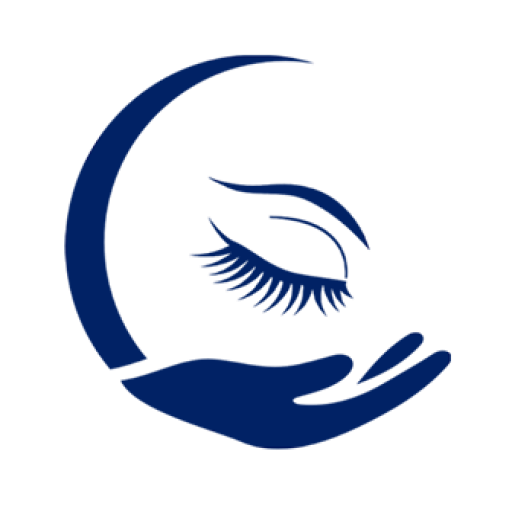Sleep Apnea Overview
Obstructive sleep apnea is a condition in which the flow of air pauses or decreases during breathing while you are asleep because the airway has become narrowed, blocked, or floppy.
About Sleep Apnea

A pause in breathing is called an apnea episode. A decrease in airflow during breathing is called a hypopnea episode. Almost everyone has brief apnea episodes while they sleep.*
It's estimated that obstructive sleep apnea (OSA) currently affects more than 25 million people in the United States. Approximately 2% of women and 4% of men over the age of 35 are affected.
A serious sleep disorder, obstructive sleep apnea is a condition where the individual actually stops breathing repeatedly for 10 seconds or longer during sleep. Although common, sleep apnea often goes completely undiagnosed since many sufferers are not even aware it's happening.
Sleep apnea is a health problem that can be associated with high blood pressure. heart problems and stroke. It is important for patients to see a physician or a sleep disorder specialist if they are experiencing snoring and daytime sleepiness.
The most common symptoms of sleep apnea are:
- Loud snoring
- Restless sleep
- Periodic stoppages of breathing
- Irritability or personality change
- Significant daytime sleepiness
- Difficulty concentrating and poor memory
Experiencing one or more of these symptoms regularly is an indication you may suffer from obstructive sleep apnea. Your best plan of action is to schedule an appointment with your physician. Your health professional or sleep specialist will diagnose your condition and recommend you to a sleep specialist. Please contact our office for an evaluation.
Medical and Dental Treatments for Snoring and Sleep Apnea
Your health care provider or sleep specialist will perform a complete history and physical exam. This will involve carefully checking your mouth, neck, and throat. You may be given a survey that asks a series of questions about daytime sleepiness, sleep quality, and bedtime habits.
In treating snoring and sleep apnea, the goal is to keep the airway open so that breathing does not stop during sleep. The following lifestyle changes may relieve symptoms of sleep apnea in some people:
- Avoiding alcohol or sedatives at bedtime, which can make symptoms worse
- Avoiding sleeping on the back may help with mild sleep apnea
- Losing weight may decrease the number of apnea spells during the night
Since October 15, 2013, Dr. Le is in-network with Blue Cross Blue Shield, Cigna and Choice Provider for VA medical insurance and as of September 17, 2014, in-network with Medicare to provide the sleep apnea appliance as a covered medical service.
Continuous positive airway pressure (CPAP)
CPAP is now the first treatment for obstructive sleep apnea in most people. CPAP is delivered by a machine with a tight-fitting face mask. Many patients have a hard time sleeping with CPAP therapy.


Oral appliance therapy
Dr. Jennifer Le is experienced in the use of oral appliance therapy for the treatment of sleep apnea and sleep related breathing disorders. An oral appliance is a device worn in the mouth only during sleep. The device fits like a sports mouth guard or orthodontic retainer and prevents the airway from collapsing by either holding the tongue or supporting the jaw in a forward position.
Surgery
The most common surgical procedure for treating snoring is a technique that removes a portion of the soft palate and most of the uvula. The treatment is done in the physician's office by a qualified surgeon. It is usually completed in phases, which may require separate surgical procedures. This treatment can be effective in reducing snoring. It is less effective for treating people with moderate or severe obstructive sleep apnea.

Ways to minimize snoring
The most common symptoms of sleep apnea are:
- Sleep on your side
Sleeping on your side may help reduce or eliminate snoring. - Normalize your weight
Proper diet and exercise are the keys to losing and maintaining an appropriate weight. - Relieve nasal congestion
Reducing nasal congestion by using nasal sprays or nasal strips may can help decrease snoring. - Avoid alcohol or sleeping pills within four hours of bedtime
Alcohol and sedatives may cause relaxation of the airway and will make sleep apnea or snoring worse.
Experiencing one or more of these symptoms regularly is an indication you may suffer from obstructive sleep apnea. Your best plan of action is to schedule an appointment with your physician. Your health professional or sleep specialist will diagnose your condition and recommend you to a sleep specialist. Please contact our office for an evaluation.
Medical and Dental Treatments for Snoring and Sleep Apnea
Your health care provider or sleep specialist will perform a complete history and physical exam. This will involve carefully checking your mouth, neck, and throat. You may be given a survey that asks a series of questions about daytime sleepiness, sleep quality, and bedtime habits.
In treating snoring and sleep apnea, the goal is to keep the airway open so that breathing does not stop during sleep. The following lifestyle changes may relieve symptoms of sleep apnea in some people:
- Avoiding alcohol or sedatives at bedtime, which can make symptoms worse
- Avoiding sleeping on the back may help with mild sleep apnea
- Losing weight may decrease the number of apnea spells during the night
* for references, click here

